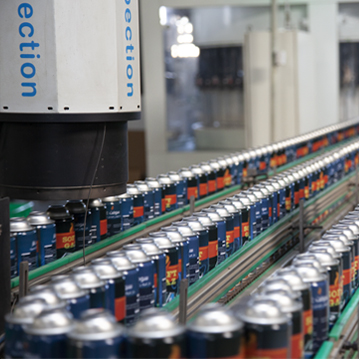
Tinplate aerosol cans (3-piece tinplate cans) are classified as pressure packaging containers, so purchasing them requires strict attention to material quality, pressure resistance, welding stability, internal lacquer, valve compatibility, and transport safety.
Below are the essential points every buyer should check before placing an order.
Structure & Specifications
1. Confirm standard dimensions
Common diameters: 45/52/57/60/65/70 mm
Height: 100–300 mm
Make sure size and structure meet local market requirements (EU/US/SEA).
2. Tinplate thickness
Typical thickness:
Recommended:
Pressure & Safety Standards
1. Request a full pressure test report
Reports must include:
|
Test |
Standard Requirement |
|
Leak/Pressure Resistance Test |
≥ 12 bar (industrial products 15–18 bar) |
|
Burst Test |
≥ 18–22 bar |
If a supplier cannot provide these tests, do NOT purchase.
2. Bottom dome quality
Check for:
The can bottom supports most of the internal pressure.
Tinplate Material & Internal Lacquer
Correct internal lacquer
Internal coating must match chemical properties:
|
Product Type |
Recommended Internal Lacquer |
|
LPG (propane/butane) |
Epoxy lacquer |
|
Brake cleaner / Engine cleaner |
Gold anti-corrosion lacquer |
|
Insecticide |
Food-grade epoxy |
|
Strong solvents |
Epoxy-phenolic lacquer |
Cans without proper internal lacquer will corrode over time.
Welding Quality
High-frequency automatic welding is mandatory
Check:
Printing & Appearance
1. Color consistency & gloss quality
Check for:
2. Surface defects
Reject cans with:
Any damage may affect pressure stability.
Valve & Actuator Compatibility
Even a high-quality can will fail if the valve is incompatible.
1.Valve size
Standard valve: 1-inch (25.4 mm)
2. Actuator selection
Must match the viscosity and application:
|
Product |
Recommended Actuator |
|
Spray paint |
Fan-shaped nozzle |
|
Foam |
Foaming actuator |
|
Lubricating oil |
Straw/extension tube actuator |
Supplier Capability & Quality Control
1. Manufacturing automation level
Prefer factories with:
Higher automation = more stable quality.
Top 5 Critical Points You MUST Confirm
To avoid 90% of quality issues:
If these five areas pass, the product is generally safe and reliable.